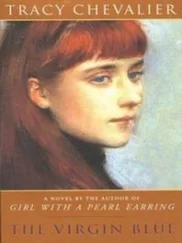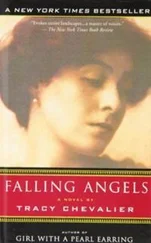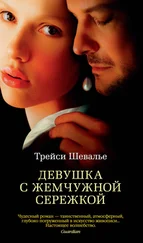Back at the boardinghouse he told his landlady the gray’s name was Pippin. “No, it’s not,” Mrs. B. replied as she wrestled a trunk down the stairs. “He’s mine now, till I sell him on, so I get to name him. His name’s West.”

As they pulled up to Pacific Wharf, the Star of the West was already under steam, and the deck lined with passengers taking their last look at San Francisco and the people they were leaving behind. William Lobb was among them, leaning on the rail and arguing with the captain. “There he is!” he shouted when he spotted the wagon with its mountain of possessions. “Goodenough, where the hell have you been? They’re threatening to fine us for holding up the ship!” He hobbled down the gangplank to them. Only when Molly descended from the wagon with the basket full of crying babies did he seem to notice Robert was not alone.
“You there!” Mrs. Bienenstock shouted up at the captain. “If you’re so goddamned worried about getting away, tell your men to bring this stuff on board. Standing there like a jackass won’t help. Jesus H. Christ, do I have to do everything myself?” She continued to swear joyfully as she shepherded Molly on board.
William Lobb stared after them. “Are you mad, Goodenough? Fifty-three trees, two babies and a woman to look after for three months on board a ship?”
“Maybe so. Anyway, I’ll get those trees to Wales, and plant ’em for the gentleman. I’ll let you know how it goes.”
William Lobb nodded. “You do that, lad.” Then he smiled, his teeth bright against his dark beard. It was a sight so unusual, especially since Lobb’s illness, that it made Robert smile too. They shook hands. “Have yourself a Pitmaston Pineapple or two while you’re there,” he added. “You know Pitmaston is only sixty miles from where the redwood grove will be.”
“Really?”
“The world is not so big after all. Now, don’t forget to set aside water for the trees, make sure there’s enough for the whole voyage. Don’t let the captain fob you off with rainwater they’ve captured-there’s too much sea spray in it, it’ll kill the trees.”
Even as Robert was hauling the rest of their things onto the Star of the West , Lobb was shouting instructions after him: “Don’t take the seedlings all out on deck at the same time: split ’em into two groups and take ’em up on alternate days. When you cross Panama, make sure the trees get their own wagon-don’t let them tuck the pails in with other goods, I’ve seen that before and the boxes shift and crush the seedlings. If that happens, though, don’t throw away the tree-there’s still a chance it can recover at the other end. And when you reach Cardiff, send a message ahead so the gentleman knows you’re coming with the redwoods. Look after those trees,” he finished, as Robert paused and looked down at his employer. “They deserve better than to perish at sea. Site them well, plant them carefully. Make them stars in their new land.”
Mrs. Bienenstock had gotten Molly and the babies settled into a cabin, and gave Robert a brusque clap on the shoulder before she left. “God help you all,” she muttered. “What a lot of trouble!” But she was whistling as she strode down the gangplank, and she waited with William Lobb to wave to them as the ship steamed away from the quay.
“Goodbye, goodbye!” Molly cried, though she couldn’t wave back with her arms full of babies. “Think of us on the other side of the world!”

Molly finally got to see the ocean. It did not take long for the Star of the West to clear Seal Rocks and head out into the Pacific. As they stood on deck watching the waves churn beneath them, Molly thrust both babies into Robert’s arms, held her own out wide and whooped, making the passengers near them smile. “All this water!” she cried, laughing. “You never told me it was this big! How long do we get to be on it?”
“Two to three months, with a week on land crossing Panama. From there we head up to New York, then change ships for Cardiff. Mr. Lobb said we’ll get tired of it.”
“Bah, I don’t listen to that Englishman. I hope the whole country ain’t like him.” Molly leaned against the railing and gazed out over the water unfurling before them.
The ship began its long turn from the afternoon sun towards the south so that eventually they would be following the California coast. Robert felt himself lurch inside, as if he was breaking off and taking a path where a compass would be no help.
He could not linger on this feeling, though, for Sarah was squirming and nuzzling at his arm, trying to find something to suck. He had never known a man or a woman or a horse as demanding as these babies were. “Can you feed Sarah?” he asked, glad to have someone with him to ask.
Molly took their daughter and got her latched on to a breast while keeping her eyes on the ocean. “Look!” she cried. A mile or so west of them a plume of water was sprayed high into the air, followed a moment later by the dark back of a whale arcing through the water. It was impossible not to be infected by her enthusiasm. Robert found his eyes glued to the ocean, watching for signs of the whale’s progress-the plumes of water, the humping back and the curved tail flashing and then sliding back down into the water. He shouted when he saw the tail, which made Molly laugh and grab him in a kiss, the babies sandwiched in between.
Later when Jimmy and Sarah were asleep in their cradle and Robert had checked on the trees, he and Molly leaned against the railing and watched the sun set. There were no clouds and little haze to soften it as it dropped down its burning path. It at least was certain of where it was going.
“What are you worryin’ about now, Robert Goodenough?” Molly was studying his profile as he looked out at the fiery water.
Robert shrugged. “I haven’t gone east ever in my life. I don’t know what I’m going to do back there.”
Molly’s skin was orange in the evening light. “I’ll tell you what you’re gonna do. You’re gonna plant fifty trees-”
“Fifty-three,” Robert corrected. “There are fifty redwoods, three sequoias.”
“You’re gonna plant fifty-three trees in England-”
“Wales.”
“-Wales, and make sure they grow so there’s a redwood grove as good as any you got here. Then you’re gonna take me to London and see the sights. Then you’re gonna find me one of them Golden Pippins you’ve talked about so much-”
“Pitmaston Pineapple.”
“-A Pitmaston Pineapple, and I’m gonna taste it for myself.”
Robert was beginning to warm to Molly’s list. He felt in his pocket for the Golden Pippin seeds Martha had brought him. They were still there. Seeds could keep for a long time. All they needed was the right place to take root. He would know it when he saw it.
The seed for this book came from the chapter on apples in Michael Pollan’s Botany of Desire: A Plant’s-Eye View of the World (2001), which gives an alternative reading of the folk hero Johnny Appleseed and the difference between eaters and spitters. Also influential was Conrad Richter’s remarkable trilogy of novels on settler life in Ohio: The Trees (1940), The Fields (1946) and The Town (1950).
I consulted a lot of other books. Here are the most useful (by subject).
Johnny Appleseed (who was referred to at the time by his name John Chapman, or as John Appleseed): Johnny Appleseed: Man and Myth by Robert Price (1954); Johnny Appleseed: The Man, the Myth, the American Story by Howard Means (2011); Johnny Appleseed and the American Orchard by William Kerrigan (2012).
Читать дальше
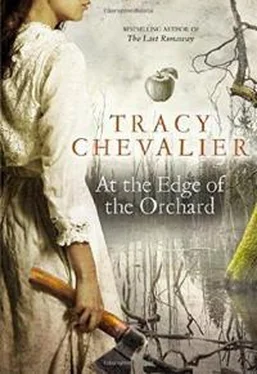



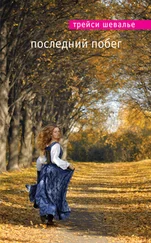

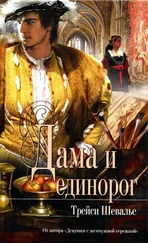
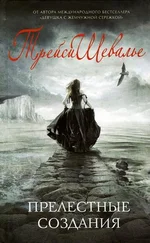
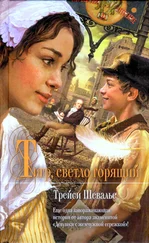
![Трейси Шевалье - Тонкая нить [Литрес]](/books/386177/trejsi-shevale-tonkaya-nit-litres-thumb.webp)
